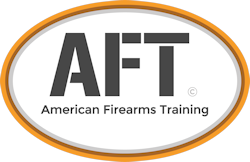Virginia Concealed Carry Reciprocity and Recognition
The laws governing the legal use, storage and carrying of firearms are constantly changing. Below are the applicable laws in the Commonwealth of Virginia as of December 23, 2015. If you have specific questions, please refer to the Virginia State Police Web Site, or a member of the Virginia Bar Association. Another great resource is the VCDL (Virginia Citizens Defense League), a non-partisan group dedicated to preserving the gun rights of Virginians.
Virginia Reciprocity News
On December 22, 2015, Attorney General Mark Herring annouced significant changes to Virginia concealed carry reciprocity enforcement. Effective February 1, 2016, Vrginia will be ending reciprocity or recognition of concealed carry permits from 25 states. After that date, Virginia will have reciprocity or recognition with only 5 states: Texas, West Virginia, Michigan, Utah, and Oklahoma. Citizens desiring to carry concealed weapons in Virginia will need a Virginia Resident Permit, a Virginia Non-Resident Permit, or a permit from one these 5 states.
Many states with which Virginia had reciprocity agreements or mutual recognition may continue to recognize Virginia concealed carry permits. Yet some states have laws demanding that reciprocity be mutual, and will therefore no longer recognize Virginia permits. These states are Florida, Louisiana, North Dakota, Pennsylvania, South Carolina, and Wyoming. To find out the current status of Virginia permit recognition, please contact the office of the attorney general or state police for any states in which you plan to carry. For the latest on Virginia reciprocity, we recommend checking the Virginia State Police Reciprocity and Recognition page.
Virginia Reciprocity States
A formal written reciprocity agreement exists between Virginia and the following States:
- Alaska
- Florida
- Kentucky
- Mississippi
- New Mexico
- North Carolina
- Ohio
- Pennsylvania
- South Carolina
- South Dakota
- Tennessee
- Texas
- West Virginia
Virginia Mutual Recognition States
Virginia and the following states have informally agreed to honor permits issued by the other:
- Arizona
- Montana
- Arkansas
- Nebraska
- Indiana
- North Dakota
- Idaho (Enhanced Lic only)
- Oklahoma
- Kansas
- Utah
- Louisiana
- Wyoming
- Michigan
Virginia Unilateral Recognition States
Virginia will grant recognition to valid permit holders from the following states, though these states may not authorize Virginia permit holders to possess a firearm in their state:
- Delaware
- Minnesota
- Washington
- Wisconsin
Virginia Non-Resident Permit Reciprocity
Virginia non-resident permit holders should contact each reciprocal state to determine if their permit will be recognized prior to carrying in that jurisdiction.
- Effective April 9, 2013, Pennsylvania no longer recognizes Virginia non-resident permits.
- Florida law does not grant reciprocity to holders of Virginia non-resident permits.
Other Permit Reciprocity
Virgin Islands Temporary Permit – Persons with a valid Virginia concealed carry permit may apply individually to the United States Virgin Islands Police Department for temporary reciprocal recognition of a CCDW license while in the Virgin Islands. This temporary recognition is normally for ninety (90) days from the date of issue. An application for temporary privileges may be requested from:
Office of the Commissioner
Criminal Justice Complex
Charlotte Amalie, St. Thomas, VI 00802
Law Enforcement Officers Safety Act of 2004 (Public Law 108-277) – Virginia honors the provisions of the Law Enforcement Officers Safety Act of 2004 (Public Law 108-277) for active and retired law enforcement officers. Active officers must present a photographic identification issued by the governmental agency for which the individual is employed as a law enforcement officer. Retired officers must present a photographic identification issued by the agency from which the individual retired from service as a law enforcement officer; and a certification issued by the State in which the individual resides that indicates that the individual has, not less recently than one year before the date the individual is carrying the concealed firearm, been tested or otherwise found by the State to meet the standards established by the State for training and qualification for active law enforcement officers to carry a firearm of the same type as the concealed firearm.

